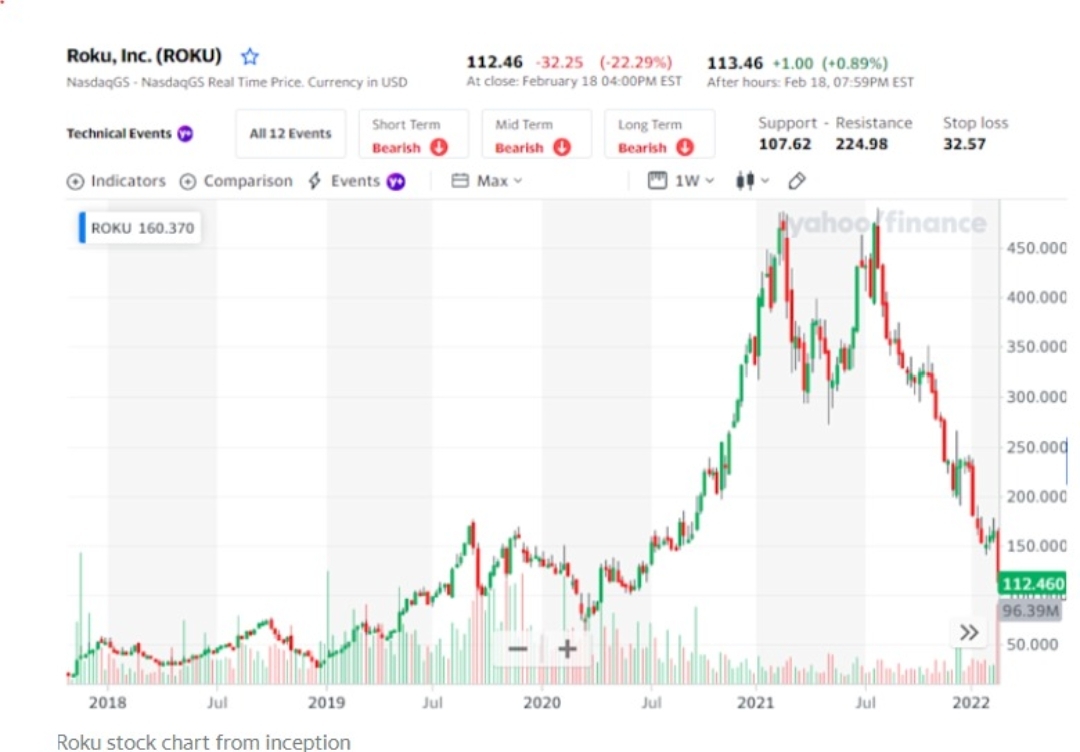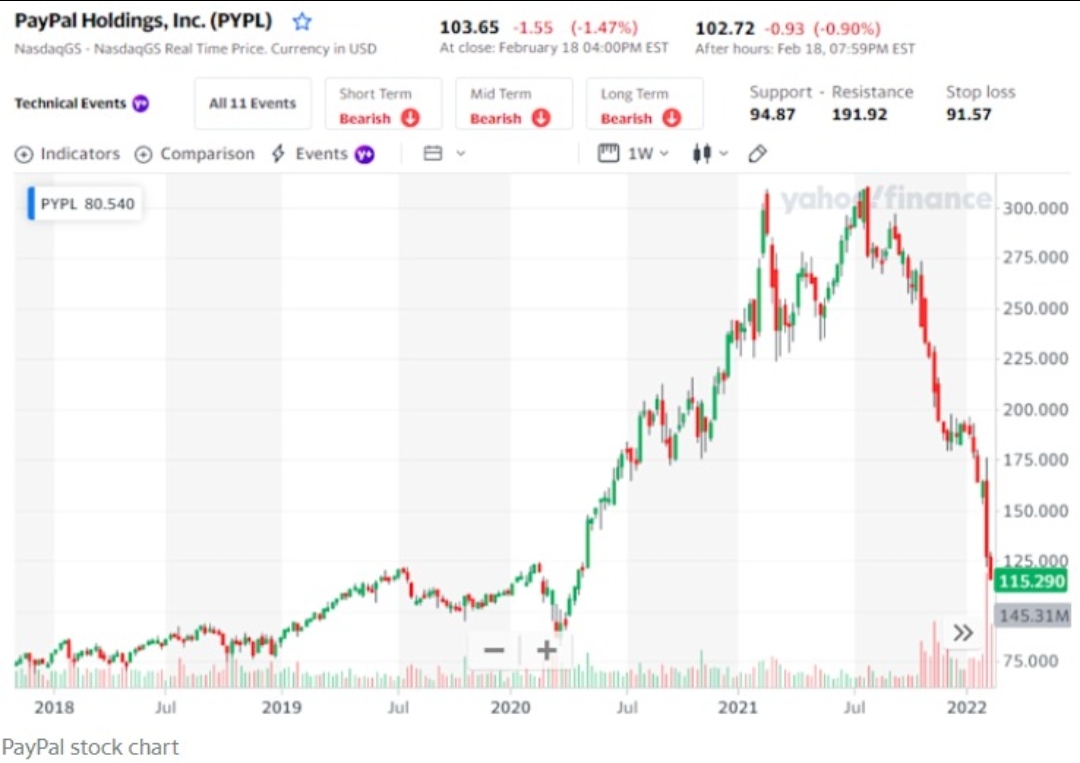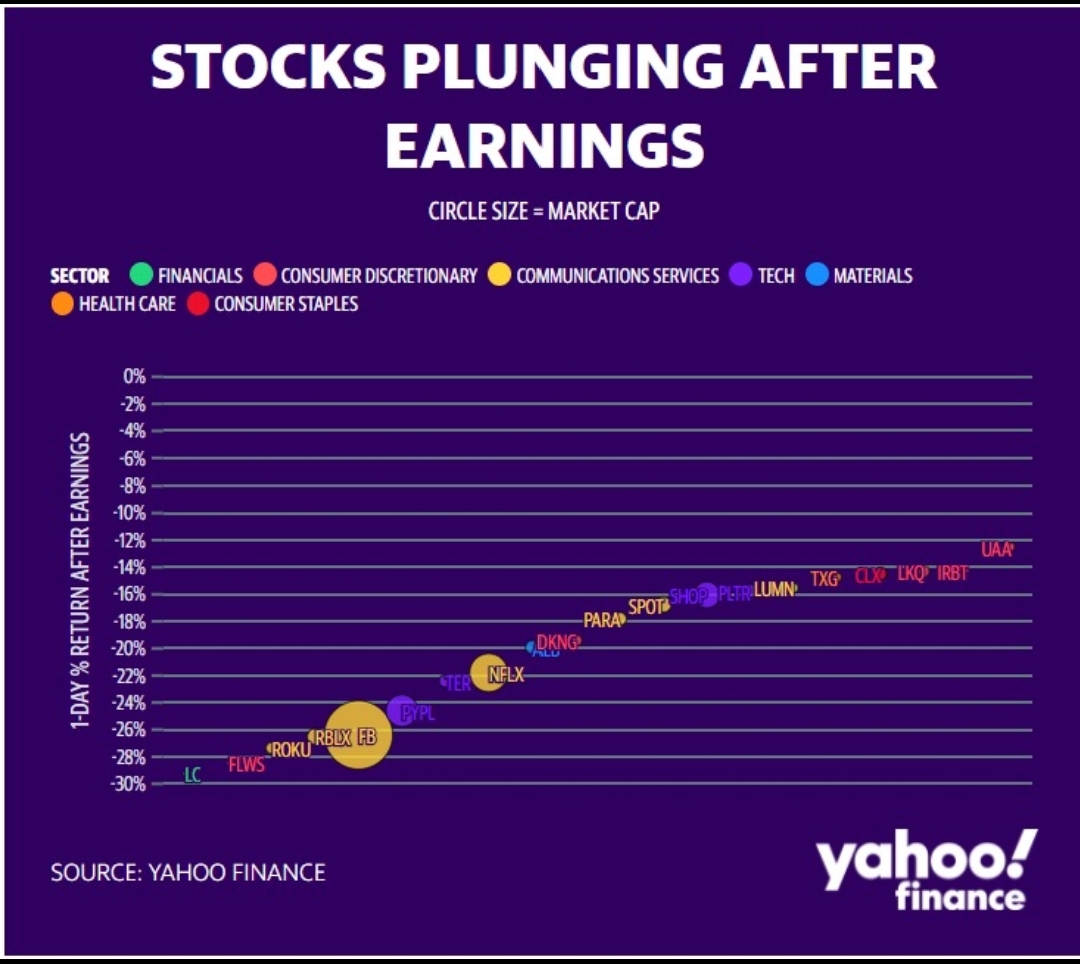Friday, another round of jaw-dropping stock sell-offs after earnings announcements hit the tape, when Roku (ROKU) stock plunged 23% and DraftKings (DKNG) cratered 22% — the second-worst one-day performance for both stocks. Nightmare earnings reactions have been a theme this quarter, as investors seize on concerns over slowing growth prospects for companies over a wide range of industries.
Combined with an increasingly hawkish Federal Reserve and a potential land war in Europe, investors are facing a perfect storm of headwinds. Yet earnings is still the engine for appreciation of the U.S. equity capital markets. Yahoo Finance crunched the numbers — peering into the S&P 500 components as well as the top Yahoo Finance trending tickers over the last year — to find the biggest one-day performance meltdowns after earnings announcements. There was no shortage of candidates.
Topping the list with the worst post-earnings performance is LendingClub (LC).The stock cratered 29% in one session in late January after they reported annual profit guidance that came up short of expectations. If we're looking for themes, the threat of higher short-term interest rates are dampening growth prospects.
Plus LendingClub is a meme stock — which 1-800-Flowers.com (FLWS) is, too. But the go-to Valentine's Day shoppe posted results recently that may speak to the wider supply chain and demand issues gripping consumer-facing industries. Benchmark maintained its Buy rating on the stock after releasing disappointing quarterly results, but the firm lowered its price target to $28 from $47 — opining that the company had "implied assumptions of no demand or supply chain improvements" throughout 2022.
In the consumer discretionary sector, along with 1-800-Flowers.com, we have LKQ Corp (LKQ), iRobot (IRBT), and Under Armour (UAA) in this list. Each is facing their own supply chain constraints and battles with inflation. But we find the most common post-earnings meltdown is in the communication services sector.
Topping that list is Roku, which suffered the same fate as Meta Platforms (FB), parent company of Facebook, during the quarter when Apple rejiggered its operating system to require opt-in from consumers for cross-app tracking. Also weighing on Roku stock are supply chain issues for its in-TV devices along with a substantial and costly commitment for investment this year.
Roku stock has round tripped its meteoric ascent from mid-2020 into early 2021 — trading from $100 per share to nearly $500 in less than a year. A casual reader glancing at the above chart would be forgiven for thinking it's a meme stock. But this $15 billion company — $60 billion at its peak — has annual revenues of $2.8 billion.
Meta's revenues? An incredible $133 billion last year. Yet the stock is trading like a small-cap biotech firm that just announced a phase 3 trial failure. Except its market cap dropped by a cool quarter trillion dollars — the largest value wipeout in history — the day after it announced stagnating user growth along with a $10 billion loss on its investment in the metaverse.
Whether you call them daily active users, subscribers, or just plain consumers — they're either growing at a much slower pace than anticipated or they're simply dropping out.
And then there's PayPal (PYPL), with its chart looking more meme-ish than that of Roku. If we're looking for a theme, these stock routs aren't limited to any particular sector. It's simply about growth factors, interest rate sensitivity, balance sheet strength and overall structural positioning inside the new post-pandemic norm.
We can go down the list of companies in this cohort seemingly sharing the same panoply of investor concerns — Roblox (RBLX), Spotify (SPOT), Shopify (SHOP) — even Clorox (CLX). But Charles Schwab Chief Investment Strategist Liz Ann Sonders, who spoke with Yahoo Finance Friday, has a simple message for investors who may be contemplating buying the proverbial dip.
"I wouldn't just try to bottom fish a disaster simply because the stock has gone down a lot in an environment like this where growth has slowed ... I think quality value fundamentals matter," said Sonders. "And if you happen to see a drawdown and the fundamentals are still there, absolutely, but I wouldn't bottom fish purely based on price decline."



Comments
Great. [强]